
BIOLOGICAL REVIEWS
Scope & Guideline
Exploring the frontiers of agricultural and biological sciences.
Introduction
Aims and Scopes
- Evolutionary Biology:
The journal consistently focuses on the evolutionary dynamics of species, examining how evolutionary processes shape biodiversity, behavior, and ecological interactions. - Ecological Interactions:
A significant emphasis is placed on the interactions between species and their environments, including studies on population dynamics, species interactions, and ecosystem services. - Conservation Biology:
Research addressing the conservation of biodiversity and the impacts of human activities on ecosystems is a core area, with contributions that explore strategies for sustainable management. - Physiological Ecology:
The journal features studies that investigate the physiological adaptations of organisms to their environments, particularly in the context of climate change and ecological stressors. - Integrative Approaches:
There is a unique focus on integrating various biological disciplines, including genetics, ecology, and behavior, to provide a holistic understanding of biological systems. - Methodological Innovations:
BIOLOGICAL REVIEWS emphasizes methodological advancements in ecological and evolutionary research, promoting innovative approaches to data analysis and interpretation.
Trending and Emerging
- Climate Change Impact Studies:
There is a significant increase in research examining the effects of climate change on biodiversity and ecosystems, highlighting the urgency of understanding these impacts for conservation efforts. - Microbiome Research:
Emerging themes in microbiome research are gaining attention, particularly regarding their roles in health, behavior, and ecosystem functioning, indicating a growing interest in symbiotic relationships. - Behavioral Ecology and Social Structures:
An increasing number of studies focus on the behavioral ecology of animals, particularly in relation to social structures and interactions, reflecting a trend towards understanding complex social systems. - Conservation Genomics:
The integration of genomic techniques in conservation biology is on the rise, emphasizing the importance of genetic diversity and evolutionary resilience in conservation strategies. - Anthropogenic Effects on Biodiversity:
Research exploring the impacts of human activities on ecosystems, including habitat fragmentation and pollution, is becoming more prevalent, acknowledging the need for sustainable practices.
Declining or Waning
- Traditional Taxonomy:
There seems to be a waning interest in traditional taxonomy and classification, as the field increasingly emphasizes functional and ecological relationships over strict phylogenetic categorizations. - Historical Biogeography:
Research focused solely on historical biogeography is less prevalent, with a shift towards understanding contemporary ecological processes and their implications for biodiversity. - Physiological Mechanisms of Behavior:
While physiological studies remain important, there is a noticeable decline in papers focusing exclusively on physiological mechanisms of behavior, as integrative approaches gain traction. - Single-Species Studies:
The focus on single-species studies is diminishing, with a growing trend towards multi-species interactions and community-level analyses. - Invasive Species Management:
Although still relevant, the frequency of papers dedicated solely to invasive species management has decreased, possibly due to a broader focus on ecosystem-level impacts and restoration strategies.
Similar Journals

JOURNAL OF BIOSCIENCES
Navigating the Landscape of Biosciences Since 1979JOURNAL OF BIOSCIENCES, published by the Indian Academy of Sciences, has established itself as a pioneering platform in the fields of biosciences, encompassing diverse research areas such as agricultural and biological sciences, biochemistry, genetics, molecular biology, and medicine. With an impressive trajectory since its inception in 1979, the journal has achieved notable recognition, securing a Q1 ranking in Agricultural and Biological Sciences and maintaining its place in the top quartiles for Biochemistry and Medicine as of 2023. With Scopus rankings placing it at #32 in General Agricultural and Biological Sciences and #65 in General Biochemistry, Genetics, and Molecular Biology, the journal reaches the 85th and 70th percentiles respectively, reflecting its impact and relevance in current scientific discourse. Although it does not offer open access, the JOURNAL OF BIOSCIENCES remains crucial for researchers, professionals, and students dedicated to advancing knowledge and innovation within the biosciences, providing a vibrant forum for high-quality research and comprehensive reviews.

BIOLOGY BULLETIN
Advancing Biological Insights for a Sustainable Future.BIOLOGY BULLETIN is a prominent academic journal published by PLEIADES PUBLISHING INC, dedicated to advancing the fields of Agricultural and Biological Sciences as well as Biochemistry, Genetics, and Molecular Biology. With an ISSN of 1062-3590 and E-ISSN of 1608-3059, the journal has been a vital resource for researchers and professionals since its commencement in 1996. Located in the United States, BIOLOGY BULLETIN operates within a highly competitive academic landscape, achieving a 2023 ranking in the Q3 quartile for Agricultural and Biological Sciences and Q4 for Biochemistry, Genetics, and Molecular Biology, highlighting its commitment to delivering impactful research despite its challenges. Researchers seeking to publish their findings will find a platform for significant insights, as reflected in its Scopus rankings, where it stands at #183 and #199 out of 221 in its respective categories, showcasing opportunities for growth and visibility. While currently not an open-access publication, BIOLOGY BULLETIN plays a crucial role in facilitating scholarly communication and fostering an understanding of biological sciences, making it an essential read for academics, professionals, and students alike.
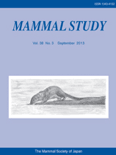
MAMMAL STUDY
Connecting researchers to promote mammalian science and ecology.Mammal Study, published by the Mammalogical Society of Japan, is a leading academic journal dedicated to the field of mammalogy and related biological sciences. Since its inception, it has provided a critical platform for researchers, professionals, and students to share their findings and insights into the diverse facets of mammalian biology, ecology, and conservation. The journal, with ISSN 1343-4152 and E-ISSN 1348-6160, is recognized for its rigorous peer-review process and has attained a commendable Q3 ranking in the 2023 category of Animal Science and Zoology. With an impact factor reflecting its growing influence—ranking 283 out of 490 in Scopus—we welcome contributions that advance the understanding of mammalian species and their habitats. While access to published articles is through traditional channels, the journal aims to reach an even wider audience by fostering greater awareness and appreciation for mammalian research and conservation efforts. The Mammal Study has converged years of insightful publications from 2008 to 2024, solidifying its position as a vital resource in the biological sciences.

ECOLOGY LETTERS
Connecting research to the pulse of the ecosystem.ECOLOGY LETTERS, published by Wiley, is a premier journal dedicated to advancing the field of ecology and related disciplines. Renowned for its rigorous peer-review process and impactful research contributions, the journal boasts an impressive Scopus Rank of #13 out of 721 in the category of Agricultural and Biological Sciences, positioning it in the 98th percentile globally. With a Q1 rating in the 2023 quartile rankings for Ecology, Evolution, Behavior and Systematics, it serves as an essential platform for ecologists and evolutionary biologists to disseminate cutting-edge research findings from 1998 to 2024. Although not an open-access journal, ECOLOGY LETTERS actively contributes to the global ecology discourse, making it a critical resource for researchers, professionals, and students dedicated to understanding complex ecological interactions and evolutionary processes.
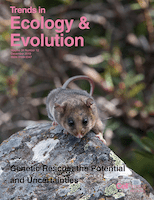
TRENDS IN ECOLOGY & EVOLUTION
Connecting Insights in Ecology, Evolution, and BehaviorTRENDS IN ECOLOGY & EVOLUTION, published by CELL PRESS, is a premier academic journal dedicated to the dynamic fields of ecology, evolution, and behavior. With its ISSN 0169-5347 and E-ISSN 1872-8383, this prestigious journal has consistently contributed to the scientific community since its inception in 1986 and is set to continue its legacy through 2024. Ranked in the top quartile (Q1) of its category in 2023, TRENDS IN ECOLOGY & EVOLUTION holds an extraordinary position, sitting at rank #4 out of 721 in the Scopus database for Agricultural and Biological Sciences, specifically within the Ecology and Evolution sectors, reflecting its high impact and relevance in these critical areas of study. The journal's objective is to provide a platform for reviewing and synthesizing the latest research, trends, and advances, thereby influencing the direction of future scientific inquiries. Although it does not currently offer open access options, its insights are invaluable for researchers, professionals, and students eager to delve into the rapidly evolving understanding of ecological and evolutionary processes.
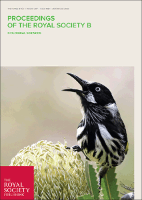
PROCEEDINGS OF THE ROYAL SOCIETY B-BIOLOGICAL SCIENCES
Pioneering Research for a Sustainable FuturePROCEEDINGS OF THE ROYAL SOCIETY B-BIOLOGICAL SCIENCES, published by the esteemed Royal Society, stands as a premier platform for disseminating cutting-edge research in the fields of Biological Sciences. With an impressive impact factor reflective of its high citation rates and scholarly contributions, this journal encompasses a wide array of disciplines, including Agricultural and Biological Sciences, Biochemistry, Genetics and Molecular Biology, Environmental Science, and Immunology and Microbiology, consistently ranking in the Q1 category across these fields. Since its inception in 1946, it has been committed to advancing our understanding of biological systems and informing evidence-based practices. Researchers and academics can submit their work without the Open Access barrier, thereby maintaining the integrity of the disciplinary discourse while providing comprehensive insights. The journal's location in the United Kingdom also positions it at the heart of global scientific innovation, making it a vital resource for professionals and students alike who are eager to explore the latest trends and breakthroughs in the biological sciences.

Cold Spring Harbor Perspectives in Biology
Elevating Scientific Discourse in Biochemistry and GeneticsCold Spring Harbor Perspectives in Biology is a prestigious academic journal published by COLD SPRING HARBOR LAB PRESS that serves as a vital resource in the fields of Biochemistry, Genetics, and Molecular Biology. With an impressive impact factor and categorized in the Q1 quartile for its contributions, this journal is renowned for curating comprehensive reviews that synthesize the latest advancements and ongoing research in these dynamic and interconnected disciplines. Since its inception in 2009, the journal has played a pivotal role in advancing scientific knowledge through high-quality articles that cater to researchers, professionals, and students alike. Although it operates on a traditional subscription model, its contributions are indispensable for those seeking to remain at the forefront of biological research and its myriad applications. With a commendable ranking of #19 out of 221 in general biochemistry, genetics, and molecular biology on Scopus, this journal ensures that its readers have access to cutting-edge insights and a rigorous academic discourse.
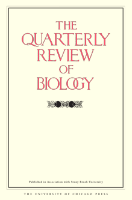
QUARTERLY REVIEW OF BIOLOGY
Championing High-Quality Research in Life SciencesQUARTERLY REVIEW OF BIOLOGY, published by University of Chicago Press, stands as a premier journal dedicated to the dissemination of high-quality research and review articles in the field of biological sciences. With an impressive impact factor and an esteemed ranking of Q1 in the Agricultural and Biological Sciences category, the journal is a vital resource for researchers, professionals, and students aiming to stay at the forefront of biological research and developments. Since its inception in 1945, the journal has evolved to cover a broad scope of topics, fostering interdisciplinary dialogue and providing critical insights that promote scientific advancement. Although currently not an open access journal, its reputation is underscored by a remarkable standing in the 95th percentile across Scopus rankings within its field. Located in Chicago, Illinois, this journal continues to be a cornerstone for scholarly communication in biology, making valuable contributions to both academia and practical applications in the biological sciences.
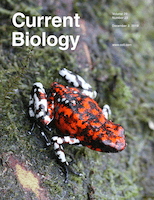
CURRENT BIOLOGY
Bridging Theory and Practice in Biological ResearchCURRENT BIOLOGY is a premier academic journal published by CELL PRESS, dedicated to a broad spectrum of fields within biological sciences. With an ISSN of 0960-9822 and E-ISSN 1879-0445, the journal has established itself as a vital resource for groundbreaking research and advancements since its inception in 1991. CURRENT BIOLOGY boasts high prominence in its categories, securing a Q1 quartile ranking in Agricultural and Biological Sciences, Biochemistry, Genetics and Molecular Biology, and Neuroscience, indicating its significant impact and relevance in these fields. Notably, it ranks #9 out of 221 journals in Agricultural and Biological Sciences, placing it in the 96th percentile, while also maintaining a strong presence in the Biochemistry category with a rank of #26. Researchers and professionals can rely on CURRENT BIOLOGY for comprehensive reviews, innovative methodologies, and crucial scientific developments that bridge theoretical knowledge with practical applications. The journal continues to play an essential role in enhancing the global dialogue in biological research, making it indispensable for students, academics, and industry experts aiming to stay at the forefront of the rapidly evolving landscape of life sciences.
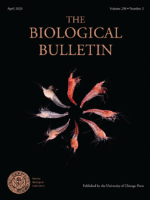
BIOLOGICAL BULLETIN
Connecting scholars with cutting-edge biological insights.BIOLOGICAL BULLETIN is a premier journal published by The University of Chicago Press, catering to the vibrant field of Agricultural and Biological Sciences. Established in 1945, this long-standing publication has evolved to serve as a critical platform for disseminating cutting-edge research and insights across various biological disciplines. With a commendable impact factor and ranking in the top quartile (Q1) of its category, the journal is recognized for its rigorous peer-review process and its commitment to high-quality scholarship, ranking #74 out of 221 in the Agricultural and Biological Sciences category on Scopus. Researchers, professionals, and students will find a valuable resource in BIOLOGICAL BULLETIN, as it continually fosters scientific dialogue and innovation, ensuring the advancement of knowledge in the biological sciences. Although not openly accessible, the journal provides numerous access options for institutions and individuals wishing to engage with its content.